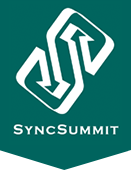By Mark Frieser
In the last SyncDeals blog post,we broke down what a master sync is, the kinds of deals that exist in the market, and in general, what percentages make sense.
And, in our first SyncDeals blog post we dealt with people asking you for money upfront (Syncola) and why, in almost every case, you shouldn’t pay before you get some play.
Both of these posts went through what I believe are some fairly clear-cut scenarios in terms of best practices, worst practices and how to navigate potential relationships with agents and sellers.
Now, let’s talk Retitling.
In this post, we’re going to take on retitling, a subject I believe is a real grey area for a lot of people, and one where there’s a lot of misinformation – not to mention a lot of strong opinions (and BS) on both sides.
And, I know not everyone is going to agree with what I have to say, but at the end of the day someone needs to try to properly break retitling down, and it might as well be me.
I say this because most of what’s written on retitling is pretty self-serving and either very pro or very con, but the reality lies somewhere in the middle.
So let’s get right into it – what’s the reality of retitling in the context of sync?
In its most basic sense it’s simple. It starts when you sign up to work with a sync agent or music library that, either in addition to or in lieu of the normal master sync fee (dependent on what company you sign to and/or the particular licensing deal), also offers you a “Non-Exclusive Retitling Deal” (we’ll call it a NERD for short) as part of your overall agreement.
In practical terms, if you sign a NERD, you’re giving the company you’re signed with a non-exclusive right to rename a specific song (e.g., “Happier” versus “Happy”) so they can register your song as your “publisher” with a Performance Rights Organization (e.g., BMI, ASCAP or SESAC in the USA) under that specific name, then collect and split the performance rights fees (they get the publisher fee, you get the writer fee) resulting from any usage of your song when they place it on your behalf.
On the surface, this sounds pretty good. You both get paid for your work, and it’s a fair breakdown. Especially if it’s non-exclusive, because I can do a deal with other companies and still own my songwriting rights, right?
After all, if a company reps you on a deal with a small or no upfront fee, but a nice potential backend (i.e., let’s say it’s played on TV a LOT), doesn’t it make sense to give that company a fair share of the money, and get your fair share too? And what’s wrong with changing the name slightly to make sure the money goes to the right people for the right deal?
It all seems pretty fair and clearcut when you put it that way, Mark…
And it is. Despite what some people may want to tell you the the contrary, what I’ve detailed above is pretty above board. It really can help you get paid, create a good new revenue stream for you, and it is a pretty simple way to show the PRO who needs to get paid.
And, while I wouldn’t retitle any works myself, either as a writer or the agent, I don’t see any real ethical issue with the practice, and despite the flak I’m going to take from some of my friends in the business I’m not going to tell people they shouldn’t go into retitling deals.
If a legit company comes to you with a NERD as part of their overall representation agreement with you, by all means seriously consider it – there are a lot of writers and artists making money that way and at the end of the day, you still get to own your work.
And, while some people say that another issue with non-exclusivity and retitling is that multiple parties will claim ownership for the same work, and this confuses/annoys buyers, I think that’s bunk.
If you are the composer, you’re the owner, and it’s pretty clear who you’ve assigned rights to based on the agreement(s) you’ve signed. If “Happier” plays on commercial A and “Happy” plays on commercial B, it’s not rocket science for the PRO to know who to pay out to so long as the cuesheets are filled out correctly by the company you’re working with. There’s nothing unethical or confusing about this.
So what’s the downside of retitling?
Actually, there are several downsides to retitling, despite what some people may tell you to the contrary, and if you’re thinking of signing a NERD, you need to keep a few things in mind.
-
Just because it’s a non-exclusive deal doesn’t mean you should sign with everyone.
Some people think that a non-exclusive means that it’s open season to sign with as many companies as possible, thereby ensuring as many people pitching your music as possible. And, while nothing short of signing an exclusive agreement would stop you from doing this, it’s not a good policy. Music supervisors and producers at agencies have a limited amount of time to go through and process music – and if they are getting the same music from 10 different sources, all with different names and prices, they may just decide to forget about using a particular track as it’s just too much trouble and move on the the next one.
Our advice? If you’re going to do NERDs, don’t do too many – perhaps no more than two or three so you don’t burn out or confuse buyers.
-
Some buyers may not work with you at all if you’re non exclusive.
There are some buyers, studios, producers, etc., that are extremely risk-adverse and they don’t want to deal with the possibility they’ll be an issue with the rights ownership or assignment of any music they use, so they’ll only use music that’s represented exclusively. This is a bigger issue than retitling – of which a NERD could or could not be a component – and some people really do only work with music that’s repped exclusively, but they’re in the minority, and it’s a legit consideration. That said, the fact is most music supervisors and agencies just want the right music for the right project, and they don’t care whether it’s exclusive or not, so long it works and the licensing/pricing is clear and simple.
The bottom line? Most buyers don’t care if you’re exclusive or not, they just want good music. Personally, I wouldn’t go exclusive unless someone invested time/money into producing and/or promoting my music and they’ve shown they get results.
-
You may not be able to do and exclusive deal with a buyer.
Well, yea, ok, but let’s be straight up, retitling or non-exclusivity has nothing to do with this. The fact is, if your music’s been used before for a project, it’s pretty hard to do an exclusive deal with a buyer after the fact, though by all means it could happen. That said, if there’s an offer for an exclusive/buyout on the table and you want to go for it, you need to make sure before you sign a deal that anyone who is repping you will allow you to remove your tracks from their service at your request.
-
You could miss out on international royalties.
This could be a real issue for you. If there’s no clearcut idea of which PRO gets paid by the international rights society, because it’s assigned to multiple PROs and publishers, money may be paid out to the wrong company or to no one whatsoever, or at least not to you. That said, international royalty payment is a larger issue which we’ll tackle in a future post. Basically, the fewer companies you’ve assigned rights to, the less confusion will ensue in general, so do your research, consult a PRO, then sign up with two or three reps on a non-exclusive basis if you wish.
Your best bet? Consult with (or sign up with) a PRO, and ask this question of the company you’re working with and get answers in writing.
-
You’ll mess up your relationship with your publisher/future publisher.
This is, for me, the crucial point you have to take into account before going into a retitling deal. A lot of people have non-exclusive deals with publishers, have no publisher or are self published, which allows them to enter into retitling deals.
And, while that’s great for the self-publisher, if you have a publisher, can you imagine how they’ll feel about you if assign the publishing share of tracks they’re repping and administrating on your behalf to another company, and that company gets the publishing share of one of your tracks?
Answer: Not good. Not good at all.
And you know what, you may just say “So what, they’re angry, they didn’t get me the sync, so why should they expect my loyalty or expect to get paid for something they didn’t do?”And in this particular instance, I really can’t argue with you.
On a more general level, since your publisher is such an important business partner in everything you do, you should avoid undercutting their potential revenue by doing lots of deals assigning your publishing to multiple parties. You’ll disincentivize them from spending time and money on your behalf to get you sync deals, and in the long run, that can only hurt your efforts.
Our advice? Work to do deals mainly through your publisher, if you have one, with a couple – and only a couple – non-exclusive sync agents on the side at most, and coordinate with your publisher. And if you’re self-published, just go for it, but again – two or three deals – now more.
I hope this helps you navigate some of the issues surrounding retitling, and I really look forward to your feedback. Out next SyncDeals post will cover buyouts and works for hire.




